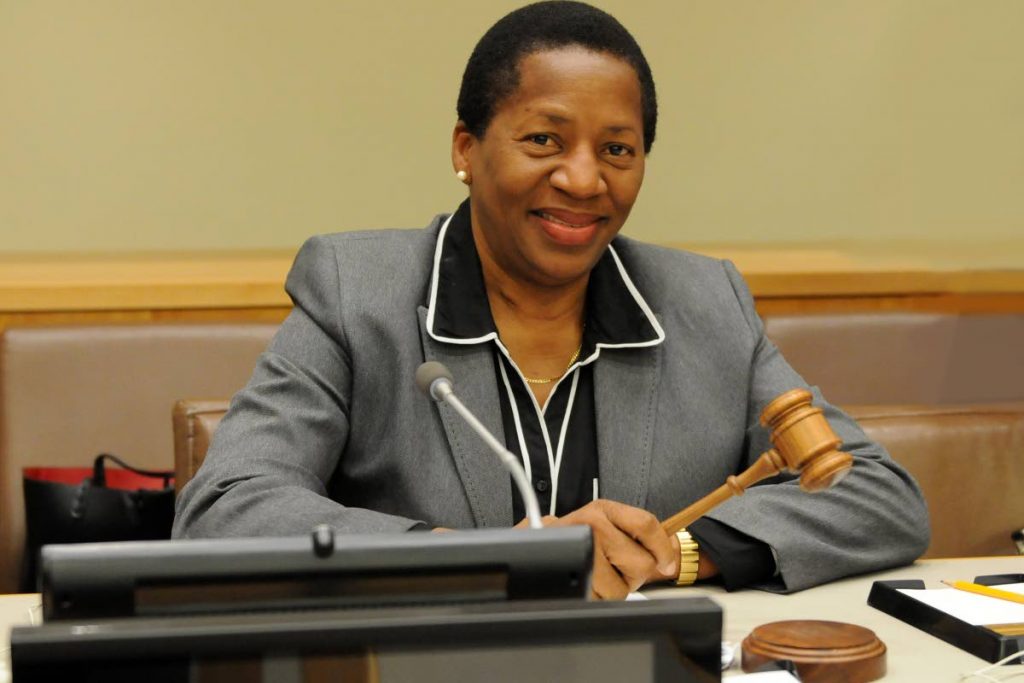Women, girls affected by violent conflict

Women and girls are among the marginalised groups disproportionately affected by violent conflict. In two statements last week, first to the First Committee briefing of the UN General Assembly on Monday, and then at the Counter-Terrorism Committee on Friday, TT’s permanent representative to the UN, Ambassador Pennelope Beckles, reiterated this country’s commitment to encouraging and integrating a gender dynamic to the dialogue and policy decisions on conflict mitigation and resolution.
Within conflicts, women and girls are often the targets of extremist violence and terrorist acts, including human trafficking. At the same time, women can also actively support terrorist groups through the recruitment of others, spreading of extremist ideologies, and participating in violent acts, Beckles told the counter-terrorism committee.
“Understanding the complex relationships between women, gender and violent extremism is critical to counter-terrorism efforts,” she said, emphasising TT’s support for enduring international, regional, and national efforts take into account gender dimensions that reflect women’s needs, agency and leadership.
At the GA’s first committee meeting, Beckles also delivered a statement on behalf of 79 countries advocating gender perspectives to exact more effective arms control, non- proliferation and disarmament.
“Gender perspectives provide key insights into how women, men, girls and boys can be differentially impacted by armed conflict, and weapons. It is a cross-cutting issue with direct relevance to the implementation of broader peace and security efforts and contributes to the realisation of (among other UN resolutions), the Sustainable Development Goals,” she said.
The difference in gendered impacts of armed conflict on women, men, boys and girls is a critical consideration. For example, while men make up most direct casualties from the use of small arms and light weapons, such weapons are often used to facilitate acts of gender-based violence against women and girls, resulting in long-term physical, psychological and socio-economic impacts.
“Applying a gender lens to our work allows us to devise more sustainable and comprehensive policy solutions which are inclusive and more consequential.
“Pursuit of gender perspectives in our work strengthens diverse and meaningful participation by women and men in all aspects of arms control, non-proliferation and disarmament.”
With regards to TT, Beckles told the counter-terrorism council that the country “remains deeply concerned by the number of (its) nationals (who have) travelled to areas of conflict as foreign terrorist fighters (FTFs), and also recognises that that their return poses a challenge that requires a cohesive response.
She noted the government had therefore amended several key pieces of legislation to prevent and counter acts of terrorism and its financing, including the Anti-Terrorism Act in August 2018.The amendments addressed technical deficiencies in terms of compliance with UN Security Council resolutions on foreign terrorist fighters.
“TT has placed significant focus on understanding and addressing radicalisation at the national level, identifying the drivers for at-risk populations, in particular women and youth, and assisting with the rehabilitation of FTFs who return to TTfrom conflict countries,” she said.
TT has a strong record at the UN of advocating for non-proliferation and counter-terrorism, and support of the Arms Trade Treaty. Since 2010, and most recently last year, TT has tabled the biennial resolution on Women, Disarmament, Non-proliferation and Arms Control, which encourages women’s participation in disarmament decision-making processes.
“We need to collectively incorporate gender perspectives in all efforts within arms control and disarmament. Such an engagement can only improve the functioning of the disarmament machinery and strengthen international peace and security,” Beckles closed her statement to the GA.
In March next year, TT is scheduled to host a regional security conference organised by the UN Office of Counter-Terrorism.


Comments
"Women, girls affected by violent conflict"